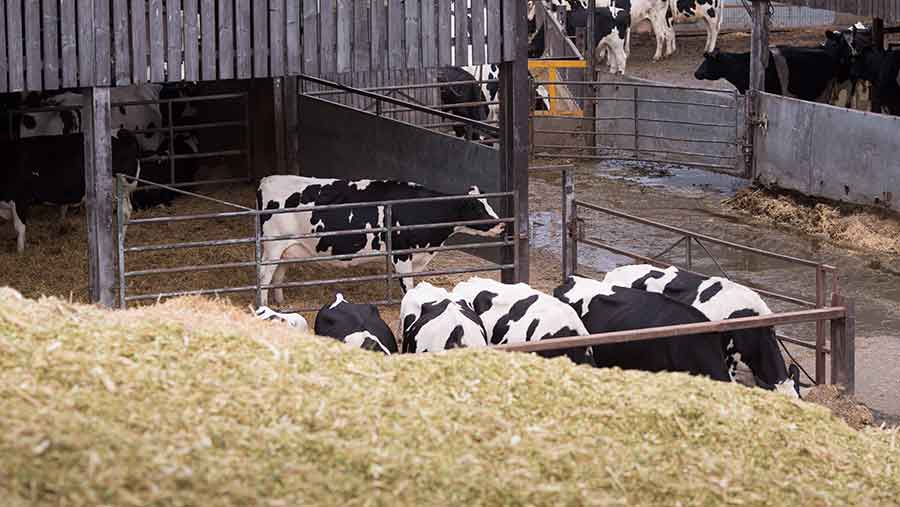Mixed maize harvest results could cause winter feed issues
 © Tim Scrivener
© Tim Scrivener Maize crops harvested late may present nutritional challenges to dairy cows, according to initial silage results.
While early-harvested maize crops are analysing well and should help support good milk yields, with quality similar to last year, a significant proportion of crops have been harvested late, which could affect feed value.
That’s according to Trouw Nutrition GB, which has analysed more than 1,000 samples this year. It says crops have produced a similar feed quality than in 2014, which suggests some well-made, good-quality forages.
See also: 2014 maize harvest results
Results
Key results from this year’s maize harvest are:
- 30.1% dry matter (- 1.4% on 2014). This means 0.7kg more freshweight will need to be fed to achieve a 5kg dry matter intake.
- ME is 11.6MJ (11.4 in 2014)
- Crude protein is 7.9% (8.1% in 2014)
- Starch degradability is higher than last year. Degradability increases with time in the clamp. Coupled with lower NDF content, this means farmers will need to balance rapidly and total fermentable carbohydrate supply to reduce the risk of acidosis
The company’s ruminant technical development manager, Liz Homer,reckons early maize crops should support good levels of milk production provided they are well-balanced.
However, she stresses there is a considerable range in the samples checked, and advised farmers to get clamps analysed and to repeat the analysis regularly so changes in starch degradability can be reflected in diet formulation.
Commenting on late-harvested crops, Dr Homer says: “Where crops have been harvested late, it is likely overall starch levels will increase as more sugars are converted to starch, leading to a higher potential ME level – provided crops do not get overripe.
“However, if the stalk becomes increasingly lignified, the crop will have lower digestibility, which will affect both energy content and intakes.
“If crops are harvested late due to the weather, increased lignification will be a serious risk and starch content may be reduced as a result of a higher proportion of vegetative material in the crop,” Dr Homer says.
